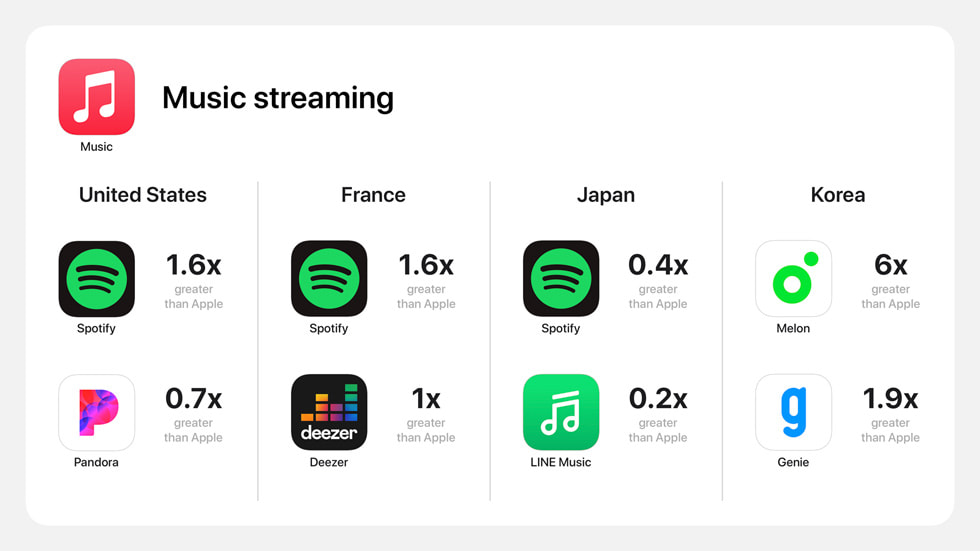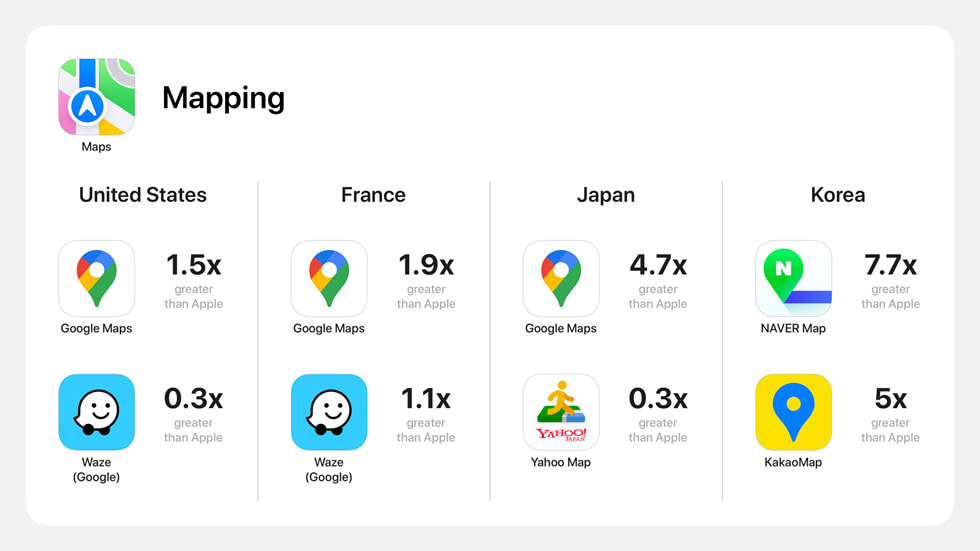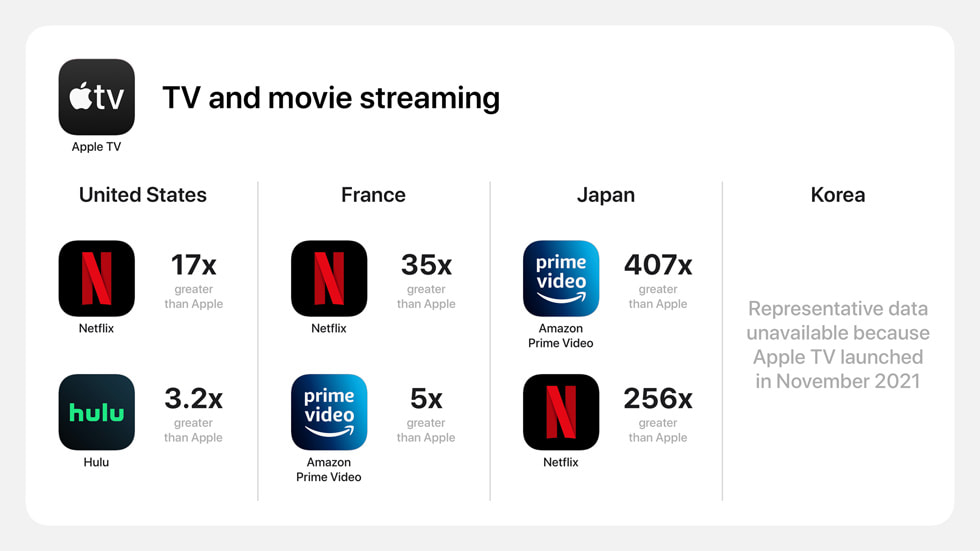UPDATE
07 April 2022
Report finds third-party apps see global success on the App Store
A report by economists at Analysis Group found that third-party apps are among the most successful on the App Store, reaching massive global audiences with high engagement across many popular app types
Today, economists at Analysis Group published a new report on the proliferation of third-party apps on the App Store, with new insights into how third-party apps perform in categories ranging from maps to music streaming, among others. The report finds that third-party apps experience broad regional and global success on the App Store, demonstrating the breadth of opportunity for developers and the wide range of choice available to consumers around the world.
Since the App Store’s launch more than a decade ago, the number of third-party apps has grown from 500 to more than 1.8 million — compared to 60 apps offered by Apple (first-party apps). Today, more than 99.99 percent of iOS apps are made by third-party developers, fueling a growing and competitive marketplace that contributes to a dynamic experience for users to the benefit of Apple and third-party developers alike.
The report analyzes apps from Apple and third-party developers across many popular app types, breaking down regional and global top performers. It also highlights just how many channels developers now have to distribute their apps — from mobile platforms, to PCs, to video game consoles.
The report also offers a deep analysis on a wide variety of app types, from service-based apps that offer TV, movie, or music streaming, to core smartphone features like communication.
Some highlights from the report include:
- Third-party apps are the only options for consumers for entire types of apps, including social networking, dating services, travel planning, and food and drink.
- Leaders in app types often vary across countries, with many regional leaders outperforming their globally competitive counterparts.
- Third-party apps are the most popular among iPhone users in most regions for major app types, including music streaming, TV and movie streaming, reading, communication, and mapping apps.
- Across many app types, Apple’s own apps account for a relatively small share of app usage among iPhone users. This is the case even though some Apple apps are preinstalled to enable core functionality of the device.
- iPhone users often use multiple apps within a single category, especially apps for communicating, reading the news, watching videos, or navigating — underscoring how easily users can switch between apps and the breadth of opportunity for developers.
Apple makes available a number of tools and core technologies to all developers to help them create innovative apps, including more than 250,000 software development building blocks called APIs. Developers can also access more than 40 Apple software development kits that let them harness the power of machine learning, augmented reality, and other cutting-edge technologies. These tools are provided to all developers in service of delivering users the widest variety of secure, useful, and innovative experiences possible on their Apple devices. And they’ve helped developers of all sizes to build best-in-class apps, and distribute them to a global audience. Apple frequently features third-party apps on the App Store, highlighting music streaming and communications apps — among many others — that offer services in categories where Apple offers its own alternatives.
Apple also invests in the next generation of developers with open access tools like Everyone Can Code, App Development in Swift, and Swift Playgrounds, which reached nearly 2 million students and educators in 2020 alone.
The report relies on outcome-based engagement metrics to analyze the success of third-party apps on the App Store, and finds that the most appropriate engagement measure depends on an app’s purpose and functionality. It also addresses how different usage measures can present different figures of success, and stresses the importance of making app comparisons within app categories.
The full Analysis Group report on third-party apps on the App Store is now available.
Share article
Media
-
Text of this article
-
Images in this article




